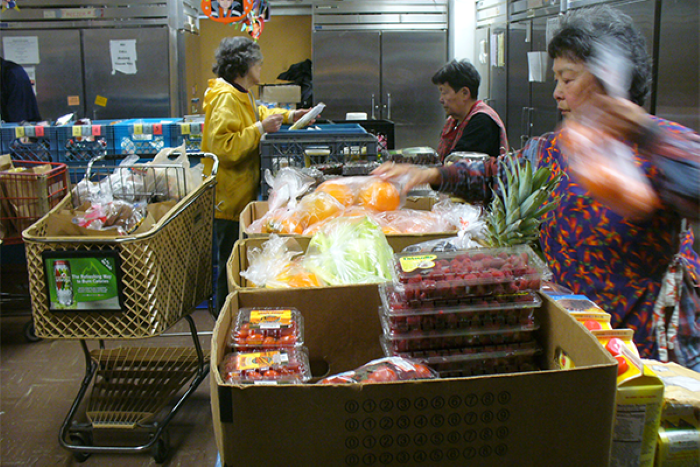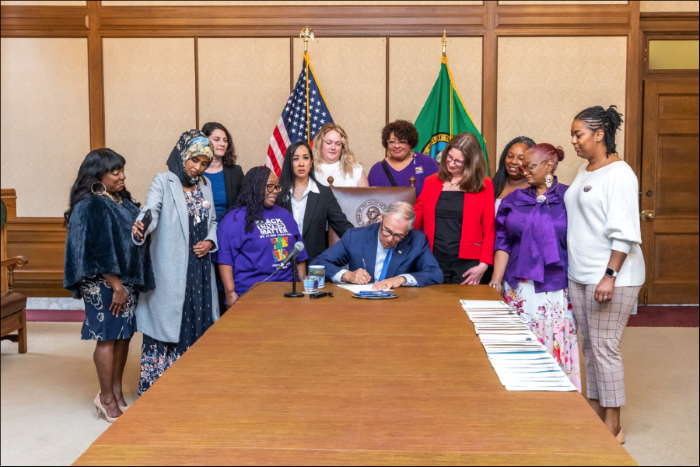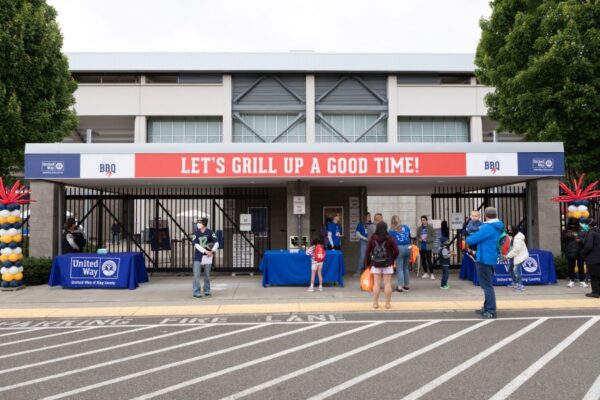Prevention Was Key in 2023—And Continues To Be
It’s safe to say you likely won’t find “prevention” on many buzzword lists. The adage says an ounce of it is worth a pound of cure, but in our cause-and-effect world, it doesn’t carry much weight. We scarcely mention the accidents we avoided with safe driving, the ailments we didn’t contract because of a healthy immune system, or the financial straits we were spared due to fiscal responsibility.
At United Way of King County, however, we believe prevention is power. In 2023, we and our partners ramped up our preventive efforts in areas such as housing and education—in both our services and our advocacy.
We know that prevention often means tackling problems before they become too difficult to fix and building relationships with people while their concerns are manageable. Indeed, a study by the National Low-Income Housing Coalition found a correlation between the increase in eviction filings and a rise in unsheltered homelessness the following year. The study suggests that eviction protection programs should be in place to prevent evictions sooner rather than supporting tenants after evictions are filed.
In 2023, United Way put rental assistance and eviction protection at the core of our approach to solving the area’s homelessness crisis. We helped tens of thousands of people facing the prospect of eviction with back and future rent payments, and at the height of our distributions, we processed as much as nearly $1 million a week in rental assistance. We’ve also brought together caseworkers who had access to resources with lawyers providing legal advice.



United Way and its partners helped address community concerns through service work, advocacy and volunteerism.
This year we launched an eviction prevention program that provided relief to low-income-housing tenants who were either going to be evicted or knew they didn’t have enough funds to pay their next month’s rent. Our program allowed tenants to set up rent repayment plans with their landlords for past-due rent.
We are also doing prevention work on local college campuses, where according to a Seattle Times article, 36% report they are food insecure, and 71% of students who drop out say they leave because they have to choose between school and work.
United Way’s Bridge to Finish program supports college students with resources such as food and utilities assistance, health insurance, housing navigation, transportation assistance, and financial aid. Benefits Hubs also have on-campus benefits navigators so they can focus on graduating. Washington Student Achievement Council found that participants who accessed Benefits Hub services were 25% more likely than students of similar backgrounds to persist and complete their college education.

We are also helping to prevent child hunger with programs such as on child nutrition programs like Breakfast After the Bell, Community Eligibility Provision, and Free Summer Meals.
Then there’s our preventative work in food service and financial security. At a time when rising rent, grocery, and utility costs often leave folks unable to both put food on the table and keep their lights on, United Way makes home grocery deliveries to about 4,000 households each month. Our Free Tax Preparation campaign enables folks to take advantage of state tax credits without having to pay hundreds to tax preparers.
This year, our Free Tax Preparation Campaign served more than 6,300 clients in 11 weeks. We leveraged $10.9 million in federal tax refunds, and folks were also able to file for the state Earned Income Tax Credit, a provision launched in 2023 that gives yearly cash payments of as much as $1,200 to nearly 400,000 low-to-moderate income households.
In 2024, United Way and our partners will continue these efforts and advocate for policies that foster more prevention.
We will advocate for state legislation that funds ninth-grade success programs to prevent students from dropping out of high school. We will push for increasing the size of the Earned Income Tax Credit. And we will advocate for funding a full-time, on-campus navigator at the state’s 2-year and 4-year colleges to help students continue their education.
We do so while knowing that prevention work isn’t eye-catching or headline-grabbing. Yet our region will never see an ending to homelessness until we stop the flow of people being evicted from their homes and forced out onto the streets. We laud efforts by those working with students who have dropped out of high school or college but we believe more must be done to keep students in school.
As challenging as King County’s problems are, prevention has kept them from getting totally out of hand. More preventative efforts could make solutions to our problems more attainable. We need you to join us in these preventative efforts, through donations, advocacy, and volunteering.



Comments